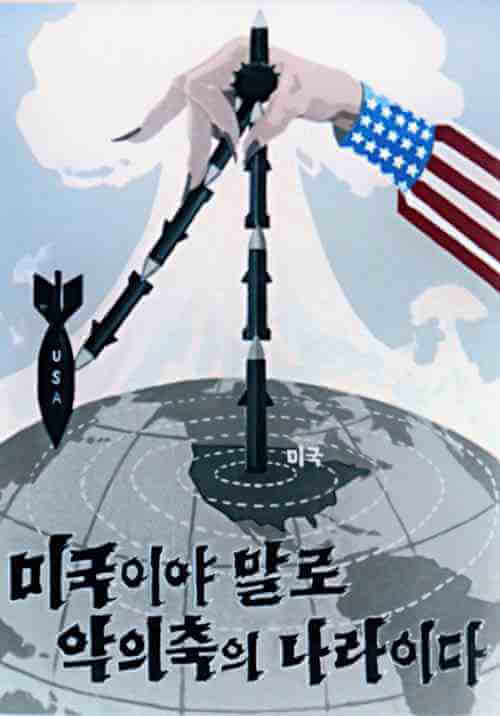Road Map for US Diplomacy Still Includes its Leadership Role
(China) on 1 March 2012
by Hong Jun Jie and Wang Shao (link to original)
Repair America’s Legacy by Heading East
Clinton stated that the main focus of America’s foreign policy is to carry out security missions in Afghanistan, Pakistan and Iraq. Its secondary goal is to put into effect its “forward-deployed diplomacy” in the Asia-Pacific region. This foreign policy ordering is in stark contrast to the “return-to-Asia” policy that had previously been so talked about in public opinion.
But actually, this foreign policy arrangement is quite logical. According to Fudan University’s vice president of the International Relations and Public Affairs College Wu Xinbo, the wars in Afghanistan and Iraq are “legacies” left behind for the current administration by former President George W. Bush. A strategic shift to the East is actually Obama’s own creation. The current administration must clean up the mess left by the previous one before it can free itself and begin focusing on other issues. However, after the Koran-burning scandal by American soldiers, ensuring that the situation in Afghanistan does not spin out of control and that the U.S. can pull out by 2014 has become an urgent problem for Washington. Looking at things from this perspective, the current strategic importance of the Afghanistan issue is more important to the U.S. than is a return to Asia.
Of course, putting America’s strategic plans for the Asia-Pacific region behind these issues does not mean that the importance of the Asia-Pacific region is any less significant. The executive director for the China Foundation for International Strategic Studies Wang Yusheng believes that the U.S. is not willing to give up any concessions in the Middle East or in the Asia-Pacific region. He believes that that the U.S. is equally invested in both. However, considering that the U.S. is currently looking to free itself from Afghanistan and Iraq but is eagerly looking to jump into the Asia-Pacific region reflects Washington’s strategic considerations; the U.S. is clearly moving into one area but leaving the other. This, coupled with the media’s reports pointing out that, in her speech, Clinton mentioned that the U.S. intends to shift towards the Asia-Pacific, allows one to draw the conclusion that America will not slow down its march to the East, but in fact my look to speed it up.
The Turbulent Situation in the Middle East Brings New Missions
Clinton’s third key priority was that the U.S. will pay close attention to the changes taking place in the Arab world and will provide aid to a number of Arab countries. Some media reports jokingly remarked that the situation in the Middle East during these last two years has brought many “new missions” to the U.S. In fact, it is obvious that there are different voices in Washington regarding the unstable situation in the Middle East. Compared to the relatively cautious stance of the Pentagon, the Clinton-led State Department has adopted a position in which they are eager to get involved. The latest developments in the area have only increased this “vanguard” role played by the State Department. During the war in Syria, it was America’s European allies that were playing the leading role, but now, with the U.S. calling for intervention, Washington has become a crucial element to the situation in the Middle East.
America’s obsession with the affairs of the Middle East is not without its reasons. On the one hand, the changes occurring in the Middle East cannot be prevented. The pro-U.S. governments of Ben Ali, Mubarak, and Saleh have all fallen from power. A pragmatic America must now consider how to initiate dealings with the new regimes. Economic aid might be the best choice. In Clinton’s speech, she stated that the State Department is planning to set up a Middle East and North Africa Incentive Fund to provide aid to several Arab countries. On the other hand, in hopes of catching a windfall, the U.S. wants to make use of the situation in the area to try to force a change in the governments of those countries that remain anti-American: Libya, Syria, and Iran.
Clinton’s fourth priority was about how to use “diplomacy and development to create American jobs.” This point was in response to the domestic economic situation against which Washington has already taken many actions. The White House had previously stated that U.S. exports in the next five years will double, creating two million jobs. At the end of last month, the U.S. established the Interagency Trade Enforcement Center which will carry out investigations and counterattacks against “unfair” competitors, including China. This action, coupled with Clinton’s statement that foreign diplomacy should serve the economy, prompted Wu Xinbo to state that one can easily foresee that trade conflicts between the U.S. and China will only increase in the future.
Clinton’s last key priority was that the U.S. must continue its strategic assistance abroad by developing means to eliminate poverty, famine, and epidemics, and to devise ways to fight global warming. The U.S., considering itself the “world police,” believes that developing programs to assist the poor abroad will reduce the conditions that breed anti-American sentiment. As a result, experts point out that America’s political goals in offering foreign aid are obvious. The U.S. often makes many demands to those countries who receive its aid, but in the end, America’s demands are little more than rhetoric that never amount to anything.
Clinton noted that “these five priorities are each crucial to American Leadership.” Her statement that “we simply cannot pull back” shows that even though the U.S. economy is weak, it still is not willing to give up on its world leadership role. Only this time, whether or not the U.S. can fulfill this dream is no longer Washington’s decision.


